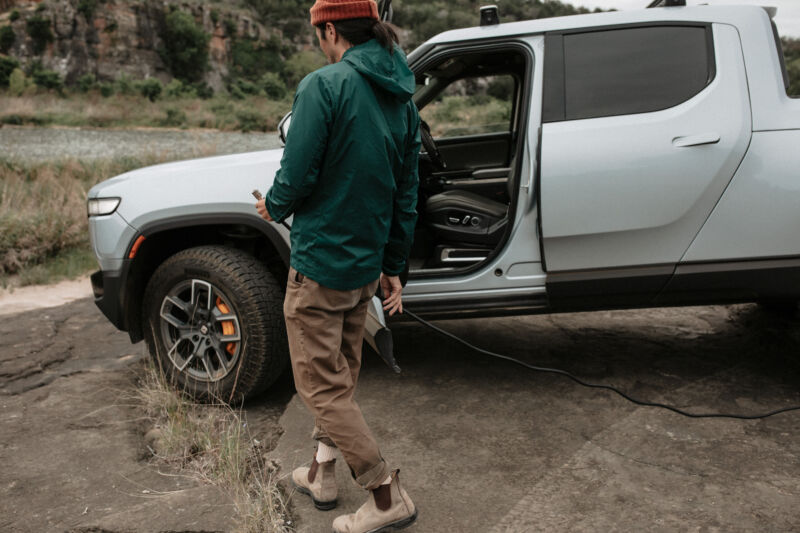
Rivian, the electric vehicle manufacturer, is being sued (PDF) by a shareholder who alleges that the company’s surprise 20 percent price hike tarnished Rivian’s reputation and violated US securities laws.
The company made “untrue statements” in its IPO about the pricing of its R1T truck and R1S SUV, the lawsuit says. “Unbeknownst to investors,” the suit says, Rivian’s filings for the IPO contained statements that were “materially inaccurate, misleading, and/or incomplete because they failed to disclose, among other things, that the R1T and R1S were underpriced to such a degree that Rivian would have to raise prices shortly after the IPO.”
The lawsuit alleges that the surprise price increases would “tarnish Rivian’s reputation as a trustworthy and transparent company” and risk the cancellation of a “significant number” of the nearly 56,000 preorders the company had accumulated.
Rivian’s CEO RJ Scaringe as well as its chief financial officer, chief accounting officer, and its board of directors are named in the lawsuit along with the underwriters of Rivian’s IPO, including Morgan Stanley, Goldman Sachs, and JPMorgan Chase.
When contacted by Ars, a Rivian spokesperson declined to comment.
Rivian’s trucks have been widely praised in the automotive press, and, according to the company, nearly 56,000 customers placed $1,000 fully refundable deposits to buy either an R1T or R1S. For a first-time automaker, such rave reviews and reservation numbers are key to establishing a presence in the notoriously challenging industry.
Last week, many of those customers were outraged when Rivian raised prices on both the R1T and R1S by significant amounts. To get a truck with the same specifications, customers were now being asked to spend $12,000 more for an R1T and $14,500 more for an R1S. These prices represent increases of 17 percent and 20 percent, respectively. When announced, the price hikes applied to nearly every preorder—only customers whose vehicles were in or near production were exempt. Production has been slow to ramp up, so few customers were likely to be grandfathered in.
Within a day, the company partly reversed course by allowing customers to keep the initial pricing that had been advertised when they placed their $1,000 deposit. Customers who had canceled preorders placed before March 1 could have them reinstated if they chose.
Despite the reversal, the lawsuit alleges, the damage had been done. At issue are statements that Rivian made in its registration statement and prospectus, two key securities filings that are intended to help investors evaluate the company’s initial public offering. Specifically, as part of those filings, SEC regulations required Rivian to “describe any known trends or uncertainties that have had or that the registrant reasonably expects will have a material favorable or unfavorable impact on net sales or revenues or income from continuing operations.”
In its statements to the press at the time of the price hikes, Rivian said that “inflationary pressure” was to blame for the increases. Yet the shareholder complaint, citing Ars Technica’s coverage of Rivian’s price hikes, points to another lawsuit filed by Laura Schwab, the company’s former VP of sales and marketing.
One of Schwab’s allegations was that, to Rivian management, “it was clear that the vehicles were underpriced, and each sale would result in a loss for the company.” After Schwab repeatedly raised the issue, one senior executive “agreed that they would need to raise the vehicle prices after the IPO.”
The new shareholder complaint is asking for class-action status on behalf of all common stock shareholders who participated in the Rivian IPO on November 10, 2021, when the stock was offered at $78 per share. The day before the price hike was announced, Rivian traded for around $67 per share. But, the lawsuit points out, in the days after the price hike, the company’s value has tumbled to around $42 per share.
